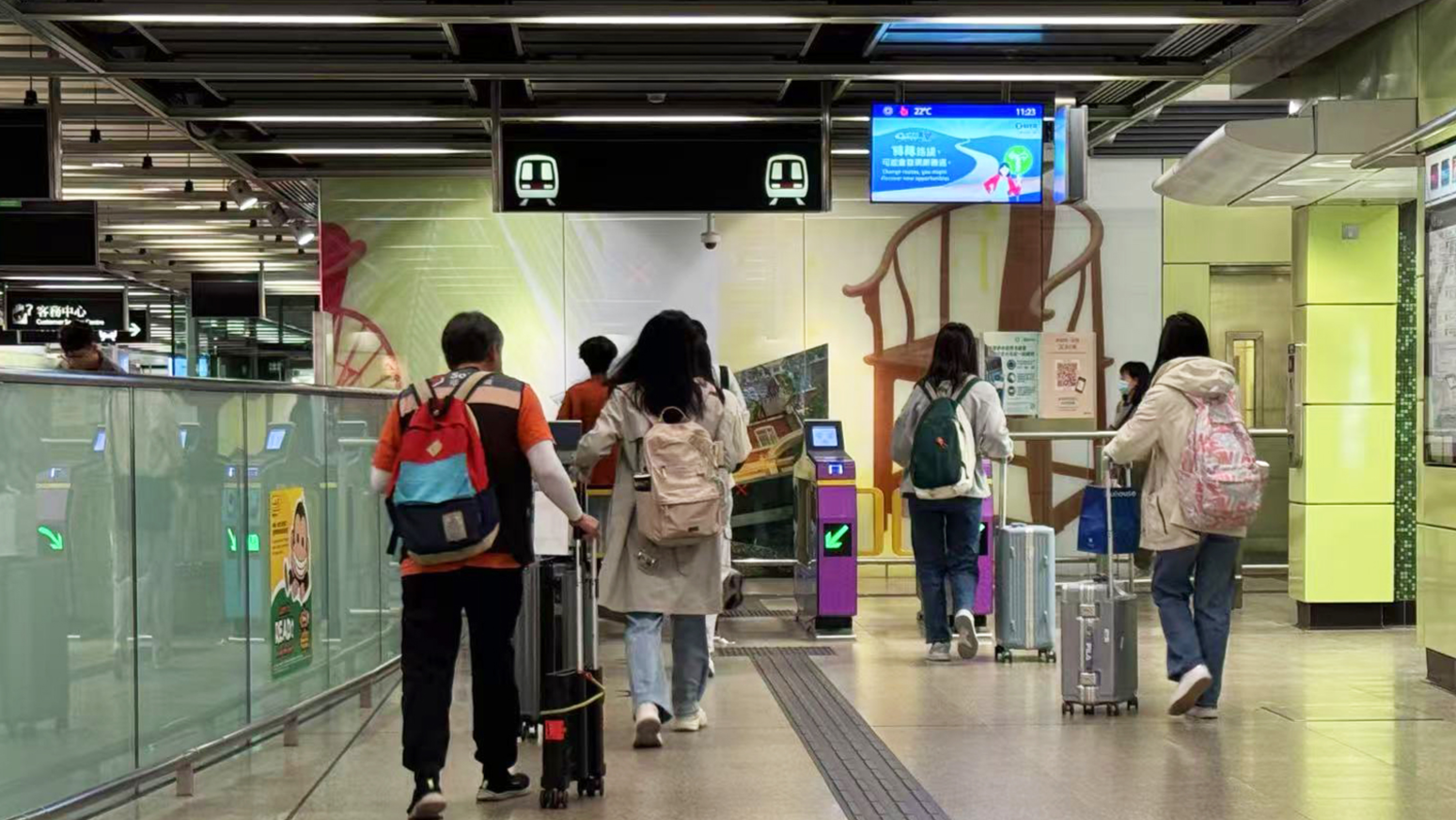
The Hong Kong Special Administrative Region government pledged to leverage cutting-edge technologies such as artificial intelligence (AI) and big data analytics to accelerate smart mobility initiatives.
These initiatives, ranging from autonomous vehicles, smart traffic signal-and-monitoring technologies and green mass transit systems, are aimed at enhancing transportation efficiency and improving urban mobility.
The government on Friday gazetted the Scheme for the Smart and Green Mass Transit System in East Kowloon (SGMTS-EK), a 7-kilometer rail line that is expected to serve 300,000 residents in Kwun Tong’s hilly neighborhoods.
READ MORE: HK unveils roadmap for green energy bus, taxi fleets by 2050
The nine-station route will link the MTR’s Choi Hung and Yau Tong stations, serving key populated areas including Sau Mau Ping and Lam Tin North, with travel times projected to be halved during peak hours.
A government spokesperson said: “The SGMTS-EK will provide a convenient, eco-friendly feeder service, enhancing accessibility to MTR stations and unlocking East Kowloon’s development potential.”
Construction will commence once the program is authorized and is expected to be completed by 2033 or earlier. Residents and stakeholders can submit any objections until Aug 19.
Meanwhile, in papers submitted to the Legislative Council (LegCo), the government said it has been proactively advancing the construction of smart infrastructure, collecting and analyzing mobility data, and applying technologies in more transportation scenarios to promote smart mobility.
For instance, the authorities have been piloting a smart motorway program at the Ting Kau Bridge — which connects Tsuen Wan with the Tsing Yi island — since December 2024.
The program features an automatic incident detection system, aimed at leveraging technology to maximize the use of limited road resources and strengthening the resilience of transportation infrastructure for responses to incidents.
The papers show that the program successfully detected 11 out of 16 minor traffic incidents that occurred in the designated road section within a 10-second period, reducing the time required for manpower to identify traffic incidents by nearly 90 percent.
The Transport Department said it will continue monitoring the program and conduct an interim review based on data collected in the first half of 2025 to assess its effectiveness.
READ MORE: Hong Kong to introduce 4,000 hi-tech electric taxis this year
The department is also expanding the trial of autonomous vehicles, issuing permits for 21 autonomous vehicles to undergo test runs at 12 locations so far.
A project at the West Kowloon Cultural District will trial autonomous light buses equipped with an autonomous driving system.
Passenger-carrying trials on public roads within the WKCD will kick off at the end of this year, said the department.
Contact the writer at stacyshi@chinadailyhk.com


